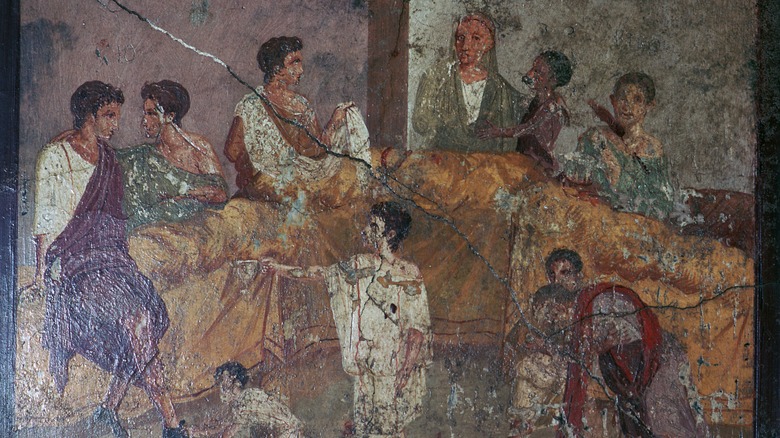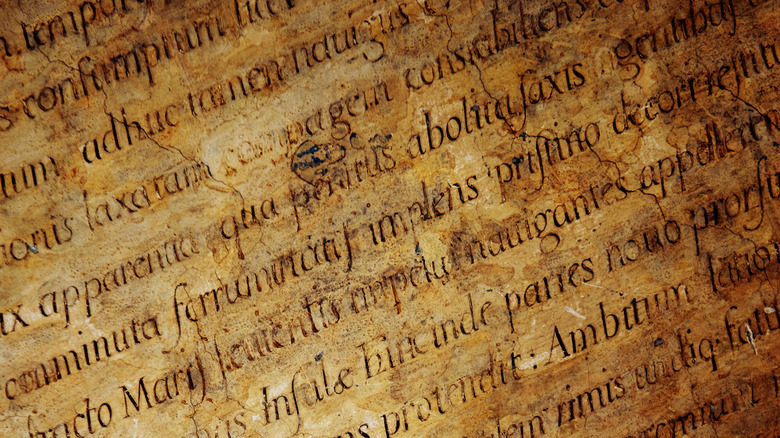This Roman Cookbook Might Be The Oldest In The World
In the first century, under the reign of the Emperor Tiberius of Rome, lived Marcus Gavius Apicius. According to Britannica, Apicius was an extremely wealthy merchant and food lover who used his considerable wealth to hold lavish banquets served with the best ingredients the Empire had to offer. His excesses eventually catching up with him, Apicius went bankrupt and subsequently poisoned himself.
During his life, Apicius made the most of the cornucopia of the Roman Empire. According to Pass the Flamingo, he dined on delicacies like flamingo tongue, fattened pig liver, and the prawns caught off the coast of his seaside villa at Minturnae. He even went so far as to sail across the Mediterranean to see if the prawns caught off the North African coast were superior to his native ones. They were not to his satisfaction. Apicius' wide-ranging adoration of food is perhaps best encapsulated in the "Apicius's De Re Coquinaria," the West's earliest known cookbook.
A cookbook for the ages
"Apicius's De Re Coquinaria" may be credited to the famed Roman gourmet, but it is likely that he didn't write it at all. Open Culture explains that, as with all ancient manuscripts that have been copied or changed over time, the original volume is lost to history. The Apicius attributed to the cookbook could have been one of many well-known, for lack of a better term, "foodies" at the time of the original writing. However, regardless of whoever compiled the first text, the Coquinaria gives us an excellent look into the eating lives of Romans.
The actual physical book that bears the title of "oldest cookbook in the world" is housed at the New York Academy of Medicine Library. According to NYAM, their manuscript was "penned in several hands in a mix of Anglo-Saxon and Carolingian scripts at the monastery at Fulda (Germany) around 830 CE." Another, more elegant and illuminated manuscript written in Tours, France, in the 9th century, is preserved at the Vatican Library (via History of Information). Some noteworthy recipes from a Gutenberg printing of the text include: how to clarify muddy wine, boiled ostrich, and stuffed dormouse.

